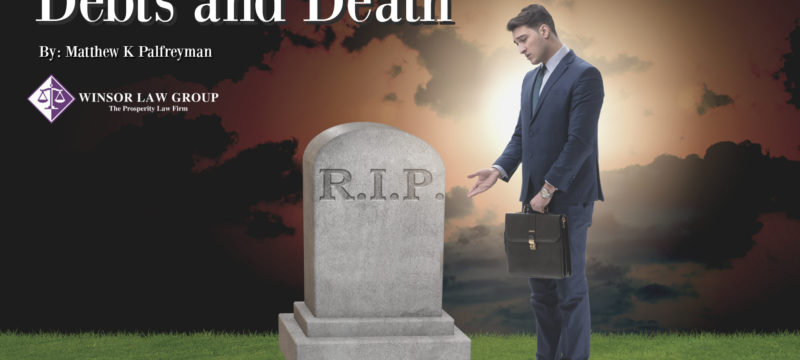
Debts and Death
- January 31, 2020
- Admin
- Comments Off on Debts and Death
Losing a loved one is hard enough, and the business of death can sometimes be just as hard. What happens with debts after death is a curious subject for most people. Almost everyone avoids thinking about it, and even less are likely to actually talk about it with their spouses, their kids, or even professionals like a planning attorney without being compelled to do so.
Many people mistakenly believe that debts disappear; the false assumption is that the death effectively wipes the ledger clean. If that were true, it seems unfair, right? If I had a questionable habit of acquiring personal loans, even if it were just to friends and family, why should they be left footing the bill? Still with all of the social history of predatory lending practices, dubious credit speculation going on in trading markets, and a complete lack of political will in governments to effectively confront its own runaway debt, it is easy to understand why many Americans would be open to accepting that kind of a break, even if it comes only after death.
The reality is that the post-death debt resolution rules and processes are designed to be fair to both creditors and debtors, and talking about options with a probate attorney about strategies to avoid or minimize a deceased person’s debts is completely reasonable and worthwhile. Even surviving spouses who are still personally, and fully responsible on their joint unsecured debts may have an opportunity to save money. There may not be a slam dunk strategy to escape the debts, but context in such situations always matters. The debtor’s death always creates an opportunity to negotiate!
Have you lost a loved one and are dealing with their debts? Call us today so we can help! 480-505-7044
*The information provided in this article is of a general nature and reflects only the opinion of the author at the time it was drafted. It is not intended as definitive legal advice, does not create an attorney-client relationship, and you should not act upon it without seeking independent legal counsel.
